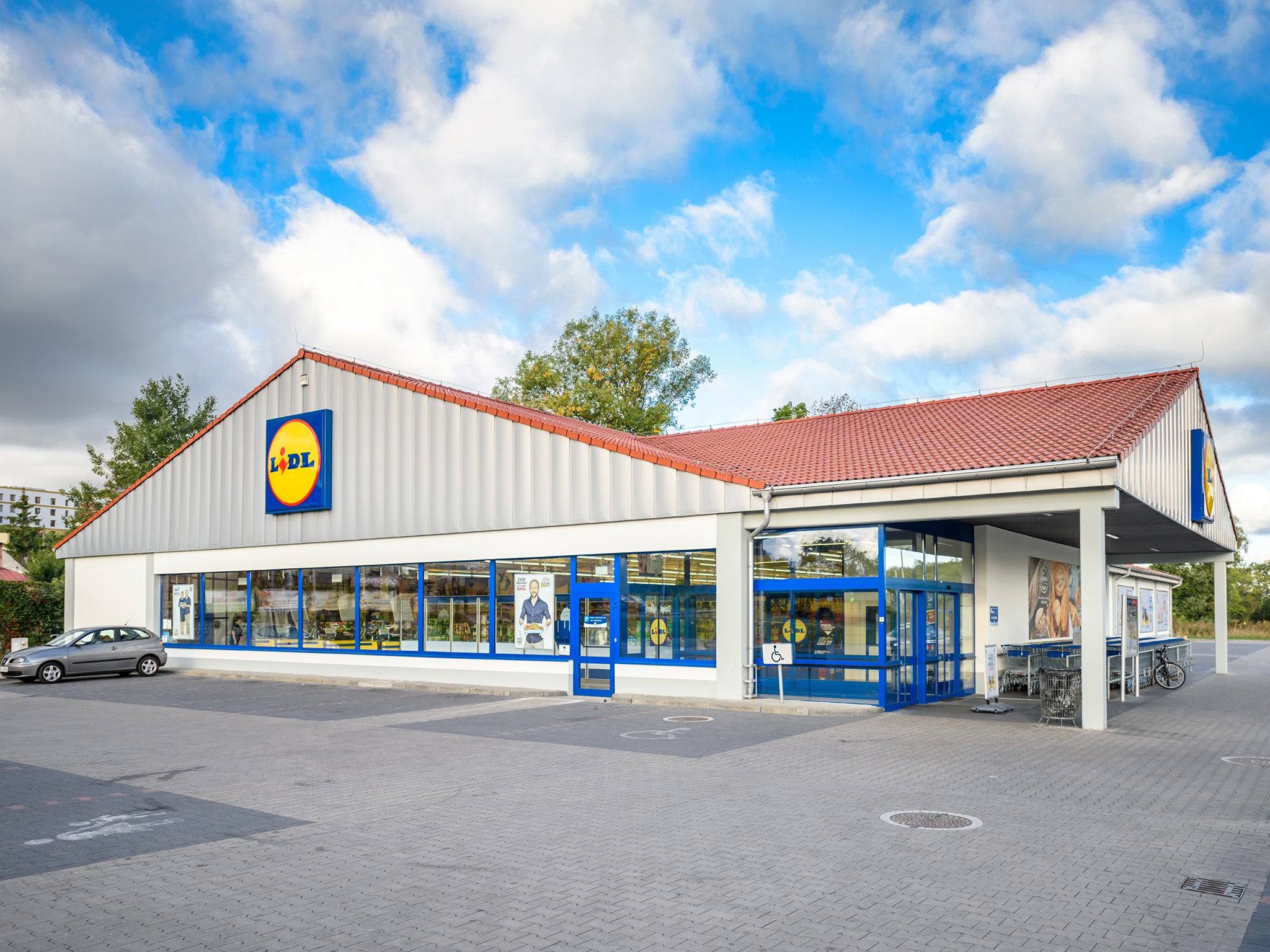The war of the supermarkets is heating up with new data showing that German discounters Aldi and Lidl are rapidly wrestling market share from Britain’s traditional retailers.
The latest figures from Kantar Worldpanel showed on Tuesday that Lidl had increased its market share to a record high of 5.2 per cent in the 12 weeks to 13 August – up 0.7 percentage points year-on-year – to become the UK’s seventh largest grocer.
“Ten million households visited the retailer’s expanding network of stores during the past 12 weeks, with alcohol and fresh produce performing particularly well as the retailer increased sales by 18.9 per cent overall,” said Fraser McKevitt, head of retailer and consumer insight at Kantar.
“Lidl is growing sales 40 per cent faster with families than with households without children. Families tend to buy more items each time they shop, so strong growth with this demographic has helped Lidl to increase its average basket size year on year,” he said.
Compatriot discounter Aldi grew sales by 17.2 per cent during the period, luring 1.1 million more shoppers through its doors than during the period last year and increasing market share by 0.8 percentage points to 7 per cent.
“Rising food price inflation continues to stretch household budgets and as a result consumers are increasingly focussing on the price that they pay at the till,” said Matthew Barnes, Aldi’s chief executive for the UK and Ireland.
“We continue to invest in price reductions to shield our customers from inflation and ensure that they pay the lowest grocery prices in the UK.”
Last week official figures showed that the annual rate of retail sale growth dropped sharply in July, hurt by a spike in inflation. Inflation was 2.6 per cent in July, up from just 0.6 per cent a year earlier.
The Kantar data shows that even though all four of Britain’s biggest grocers – Tesco, Sainsbury’s, Asda and Morrisons – grew sales, they now collectively account for just 69.3 per cent of the UK grocery market, which is down from 76.3 per cent five years ago.
“And that looks set to fall further in the coming months,” Mr McKevitt said.
Overall sales grew by 3 per cent at Tesco, but market share fell to 27.8 per cent, a 0.3 percentage points decline on the same period in 2016. The picture was similar at Sainsbury’s, where sales rose by 2 per cent but market share fell 0.3 percentage points to 15.8 per cent.
Morrisons increased sales by 2.6 per cent and saw its market share edged down to 10.4 per cent, but Kantar said that Morrisons’ online business is performing particularly well and that the retailer is still growing its share of the online grocery market.
Co-op was the only major retailer to suffer a fall in sales. They declined by 0.4 per cent and its overall market share slipped 0.3 percentage to 6.3 per cent. Kantar said that this was at least partly attributable to its sale of nearly 300 stores to convenience chain McColl’s.
Overall supermarket sales grew by 4 per cent on the same period last year, but Mr McKevitt noted that disappointing weather had hit what he calls “summer favourites” hard over the past month.
Ice cream sales slowed by 9 per cent, while sales of burgers slumped by 25 per cent, representing an £8m loss compared to the same 12-month period in 2016.
Separate data from market research firm Nielsen on Tuesday chimed with those figures.
It showed that supermarket sales grew by 2.5 per cent in the four weeks to 12 August compared to the same period last year. Sales of soft drinks fell 6.1 per cent, a decline which Nielsen also attributes to cooler weather.
Nielsen puts Lidl’s market share at 5.3 percent for the 12 weeks to 12 August, up from 4.5 per cent during the same period last year, and Aldi’s at 8 per cent, up from 7.3 per cent.
Subscribe to Independent Premium to bookmark this article
Want to bookmark your favourite articles and stories to read or reference later? Start your Independent Premium subscription today.


Join our commenting forum
Join thought-provoking conversations, follow other Independent readers and see their replies